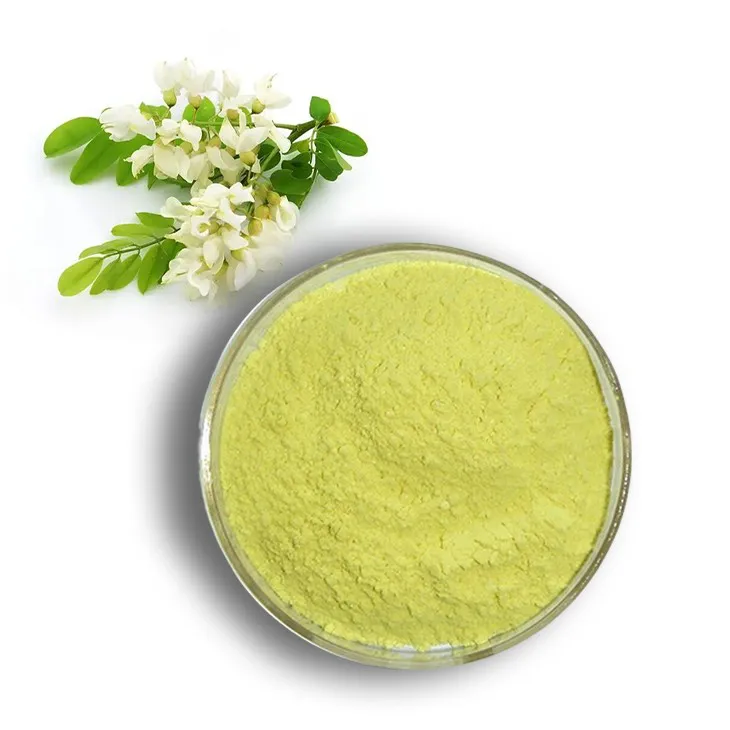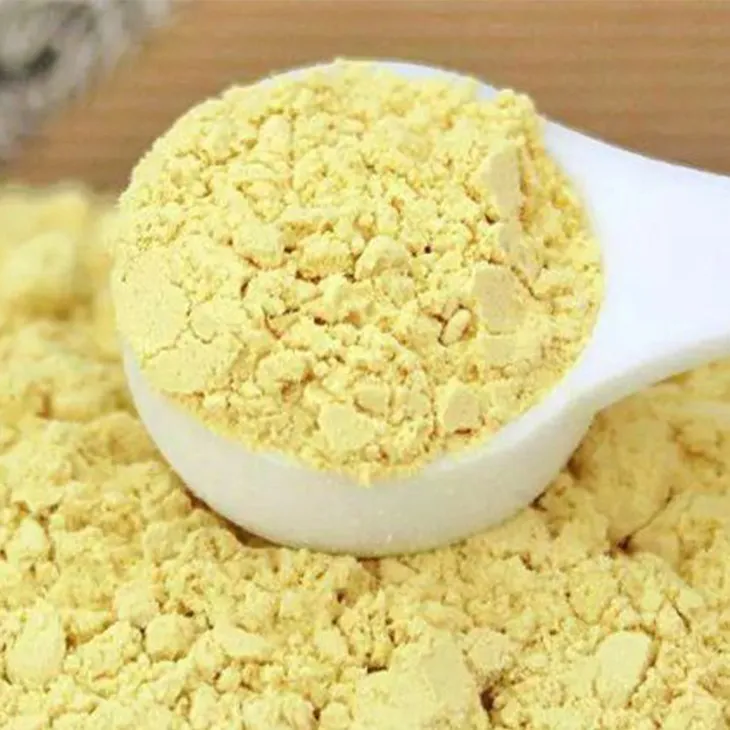- 0086-571-85302990
- sales@greenskybio.com
Troxerutin: Is the extract effective for weight loss?
2024-11-12

1. Introduction
In the pursuit of effective weight - loss methods, various substances have been explored. One such substance is Troxerutin, a flavonoid compound that is mainly extracted from plants. With the growing interest in natural products for health and wellness, it is crucial to examine whether Troxerutin can play a role in weight loss. This article aims to analyze Troxerutin from multiple aspects to determine its potential effectiveness in this regard.

2. What is Troxerutin?
Troxerutin is a bioactive compound belonging to the flavonoid family. It is typically obtained through extraction from plants such as Sophora japonica. Flavonoids are known for their diverse biological activities, and Troxerutin has been the subject of research in areas such as anti - inflammation and antioxidant properties.

3. Weight - loss Mechanisms and Their Relation to Troxerutin
3.1 Basal Metabolic Rate
The basal metabolic rate (BMR) is the amount of energy expended while at rest in a neutrally temperate environment, in the post - absorptive state. Increasing the BMR can contribute to weight loss as more calories are burned at rest. However, there is no evidence to suggest that Troxerutin has any direct impact on BMR. It does not stimulate the body's metabolic processes in a way that would lead to an increase in energy expenditure at rest. For example, substances like caffeine can slightly increase BMR by affecting the sympathetic nervous system, but Troxerutin lacks such mechanisms.
3.2 Fat Metabolism
Effective fat metabolism is crucial for weight loss. This involves processes such as the breakdown of triglycerides in adipose tissue and the subsequent utilization of fatty acids for energy. Some substances can enhance fat metabolism by activating enzymes involved in these processes or by improving mitochondrial function for better fatty acid oxidation. However, Troxerutin has not been shown to directly influence fat metabolism. It does not interact with key enzymes such as lipoprotein lipase or hormone - sensitive lipase, which are important in the regulation of fat breakdown and uptake.
3.3 Appetite Regulation
Controlling appetite is another key aspect of weight management. Hormones such as leptin and ghrelin play important roles in signaling hunger and satiety to the brain. Substances that can either suppress appetite by reducing ghrelin levels or increase satiety by enhancing leptin sensitivity can be beneficial for weight loss. Troxerutin, unfortunately, has no known effect on appetite regulation. It does not interfere with the normal hormonal signaling pathways related to appetite, and thus cannot be expected to reduce food intake or increase the feeling of fullness directly.

4. Anti - Inflammatory Properties of Troxerutin and Weight Loss
Troxerutin is known for its anti - inflammatory properties. Chronic inflammation in the body has been associated with obesity and related metabolic disorders. It might be assumed that by reducing inflammation, Troxerutin could potentially contribute to weight loss. However, this is a rather tenuous connection. While reducing inflammation can improve overall health and may have some indirect benefits on metabolic function, it is not equivalent to a direct effect on weight loss. For instance, in obese individuals with low - grade inflammation, treating the inflammation alone may not necessarily lead to significant weight reduction. There are many other factors at play, such as diet, physical activity, and genetic predisposition.
5. Studies on Troxerutin and Weight Loss
To date, there have been no comprehensive studies specifically demonstrating the direct effectiveness of Troxerutin in weight loss. Most of the research on Troxerutin has focused on its anti - inflammatory and antioxidant properties. In the absence of well - designed clinical trials that measure weight loss as a primary outcome while using Troxerutin, it is difficult to make a case for its use as a weight - loss aid. Some small - scale studies may have observed certain changes in body composition or metabolic markers in the presence of Troxerutin, but these results are often confounded by other factors and do not provide conclusive evidence.
6. Comparison with Other Weight - Loss Supplements
There are numerous weight - loss supplements available in the market, some of which have more established mechanisms of action for weight loss. For example:
- Green Tea Extract contains catechins, which can increase thermogenesis and fat oxidation, and may also have a mild effect on appetite suppression.
- Conjugated linoleic acid (CLA) has been shown to potentially affect body composition by reducing body fat mass and increasing lean muscle mass through mechanisms related to fat metabolism and insulin sensitivity.
- Orlistat is a drug that works by inhibiting the absorption of dietary fat in the intestines, leading to a reduction in calorie intake from fat.
In comparison, Troxerutin lacks these well - defined mechanisms for directly promoting weight loss.
7. Conclusion
In conclusion, while Troxerutin is a flavonoid compound with interesting biological properties such as anti - inflammation, there is no evidence to show its direct effectiveness in weight loss. It does not impact basal metabolic rate, fat metabolism, or appetite regulation in ways that would lead to significant weight reduction. Until further research is conducted specifically targeting its potential role in weight loss, it cannot be recommended as a reliable weight - loss aid. It is important for individuals seeking weight - loss solutions to focus on evidence - based methods such as a balanced diet, regular physical activity, and, in some cases, approved weight - loss medications under medical supervision.
FAQ:
1. What is Troxerutin?
Troxerutin is a flavonoid compound mainly extracted from plants.
2. Does Troxerutin affect basal metabolic rate?
No, it has no direct impact on basal metabolic rate.
3. Does Troxerutin play a role in fat metabolism?
No, it has no direct role in fat metabolism.
4. Can Troxerutin regulate appetite?
No, it has no effect on appetite regulation.
5. Why is its anti - inflammatory property not related to weight loss?
Although Troxerutin has anti - inflammatory properties, this is not equivalent to effective weight - loss as weight loss mainly involves factors like metabolism and appetite control which it does not directly influence.
Related literature
- The Role of Flavonoids in Health and Disease"
- "A Review on Plant - derived Compounds and Weight Loss"
- "Flavonoid Compounds: Beyond Anti - inflammation"
- ▶ Hesperidin
- ▶ Citrus Bioflavonoids
- ▶ Plant Extract
- ▶ lycopene
- ▶ Diosmin
- ▶ Grape seed extract
- ▶ Sea buckthorn Juice Powder
- ▶ Fruit Juice Powder
- ▶ Hops Extract
- ▶ Artichoke Extract
- ▶ Mushroom extract
- ▶ Astaxanthin
- ▶ Green Tea Extract
- ▶ Curcumin
- ▶ Horse Chestnut Extract
- ▶ Other Product
- ▶ Boswellia Serrata Extract
- ▶ Resveratrol
- ▶ Marigold Extract
- ▶ Grape Leaf Extract
- ▶ New Product
- ▶ Aminolevulinic acid
- ▶ Cranberry Extract
- ▶ Red Yeast Rice
- ▶ Red Wine Extract
-
Nutmeg Extract
2024-11-12
-
Lotus leaf extract
2024-11-12
-
Stevia Extract
2024-11-12
-
Cat Claw Extract
2024-11-12
-
Agaricus Blazei Extract
2024-11-12
-
Eyebright Extract
2024-11-12
-
Angelica sinensis extract
2024-11-12
-
Saw Palmetto Extract
2024-11-12
-
Acai Berry Extract
2024-11-12
-
Curcuma Longa Extract/Turmeric extract
2024-11-12





















